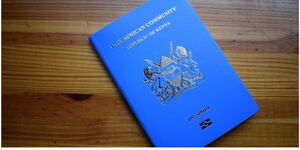The current inflation and economic hardship in the country has pushed many Kenyans to the edge, compelling them to devise unorthodox ways of making money including selling body organs with kidneys topping the list.
To address the queries raised by millions of Kenyans willing to put on sale their organs and kidneys to be specific, Kenyatta National Hospital (KNH) has maintained that there is now law in the country that allows the purchase of organs from willing sellers.
Through a statement dated Monday, June 20, KNH admitted that it has been receiving hundreds of messages from people willing to sell their kidneys and also seeking to know the prices but the practice remains outlawed in the country.
According to the law, people can only donate their kidneys out of free will.
'How much for my kidney?' is our most inboxed question,” KNH revealed on Monday, June 20.
"Please note that organ sale is strictly prohibited and illegal. You can only donate out of free will."
In July 2019, the Ministry of Health established a department to guide the donation of body organs following a law that allowed transplants from the dead.
The department, National Blood Transfusion Services, and Human Organs Transplantation was formulated to lead the implementation of the Health Act 2017 and paved the way for people to make donations of their body organs for research purposes once they die.
"This will change how things are done in as far as transplants are concerned. This law makes it clear on the harvesting of organs and even makes it possible for people to consent to have their organs donated after they are dead," the Ministry explained.
The law allowed competent individuals to write a will to donate their body organs or tissue after death. Such consent can also be given by a spouse, elder child, parent, guardian, elder brother, or sister in the event the person died without leaving a will.
The Health Cabinet Secretary was also granted powers to call for the donation of a body part in case the deceased relatives cannot be traced.
The Ministry of Health further formulated penalties for those who contravene the law. Those found culpable of breaching the law are liable for a fine not exceeding Ksh10 million or imprisonment for a period not exceeding 10 years or both.
The formulation of the laws follows concerns raised by the United Nations over the increased illegal trade in human kidneys, livers, and tissues like the cornea.
The report detailed that the kidney was is in great demand because it is one of the major organs that can be transplanted with fewer risks to the living donor.
UN also raised concerns about black markets selling human organs which were tied to increased cases of disappearances, especially among the young people.
In Kenya, the thriving black market for body organs and tissues was linked to high poverty rates in the country and unclear laws outlawing the practice.
Ever rising cases of kidney failures and other forms of diseases have been attributed to the rising demand and sprouting of illegal markets.












